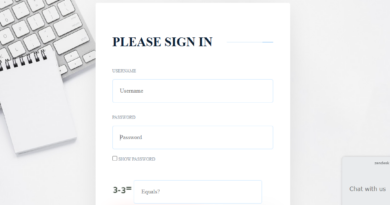The Monogamy Experiment: Exploring Relationship Dynamics
The Monogamy Experiment offers a comprehensive guide to understanding and navigating diverse relationship dynamics, including monogamy, non-monogamy, and polyamory. Relationships today are not confined to traditional norms, and many individuals are exploring alternative ways to connect deeply and authentically with others. This article delves into these dynamics, highlighting their unique features, challenges, and opportunities for personal growth and mutual understanding.
Understanding Monogamy
Monogamy has long been the cornerstone of traditional relationships, where two individuals commit exclusively to each other. It provides a framework for emotional security, trust, and societal acceptance. For many, monogamy offers stability and a clear set of expectations.
However, modern challenges such as evolving gender roles, changing societal norms, and technological influences have led some to question the sustainability of lifelong monogamous commitments. The Monogamy Experiment encourages individuals to critically assess their needs and values to determine whether monogamy aligns with their personal desires and relationship goals.
Non-Monogamy: Breaking the Mold
Non-monogamy, an umbrella term for relationships that deviate from traditional exclusivity, includes open relationships, swinging, and polyamory. This approach allows individuals to engage in multiple emotional or sexual connections with the consent and knowledge of all parties involved.
The appeal of non-monogamy often lies in its flexibility and emphasis on open communication. Partners are encouraged to express their desires and boundaries without fear of judgment. However, this dynamic also requires a heightened level of trust and self-awareness to navigate potential challenges, such as jealousy or time management. The Monogamy Experiment provides tools for exploring non-monogamy in a way that fosters growth and mutual respect.
Polyamory: Love Beyond Limits
Polyamory is a specific form of non-monogamy that emphasizes multiple loving relationships rather than purely physical connections. This dynamic is rooted in the belief that love is not a finite resource and that individuals can experience deep emotional bonds with more than one person simultaneously.
In polyamorous relationships, honesty, communication, and consent are paramount. Each individual must be transparent about their needs, expectations, and feelings to maintain harmony and avoid misunderstandings. While polyamory offers the potential for profound connections and personal growth, it also requires significant effort to balance the needs of all involved. The Monogamy Experiment explores how polyamory can challenge traditional notions of love and commitment while promoting authenticity and connection.
Navigating Challenges in Relationship Dynamics
Regardless of the relationship structure, challenges are inevitable. Jealousy, miscommunication, and unmet expectations can arise in monogamous, non-monogamous, and polyamorous setups alike. The key to overcoming these obstacles lies in open dialogue, empathy, and a willingness to adapt.
The Monogamy Experiment emphasizes the importance of setting clear boundaries and regularly checking in with partners to ensure everyone feels valued and respected. It also highlights the need for self-reflection and emotional intelligence, which are crucial for addressing insecurities and fostering healthy dynamics. By prioritizing these practices, individuals can create relationships that thrive despite challenges.
The Journey to Self-Discovery Through Relationship Exploration
Exploring different relationship dynamics is not just about finding the right fit—it’s also a journey of self-discovery. Understanding what brings fulfillment, what triggers insecurities, and what values hold the most significance can lead to greater self-awareness and personal growth.
The Monogamy Experiment encourages individuals to approach relationships with curiosity and an open mind. Whether one chooses monogamy, non-monogamy, or polyamory, the goal is to cultivate meaningful connections that align with personal values and aspirations. This journey may involve trial and error, but it ultimately fosters a deeper understanding of oneself and others.
Conclusion
In today’s evolving social landscape, exploring relationship dynamics has become more relevant than ever. The Monogamy Experiment serves as a valuable resource for those seeking to navigate monogamy, non-monogamy, and polyamory with clarity and confidence. By embracing open communication, self-reflection, and mutual respect, individuals can create relationships that are authentic, fulfilling, and uniquely their own. Whether you are reaffirming traditional values or venturing into new territories, the journey is one of growth, connection, and profound discovery.




